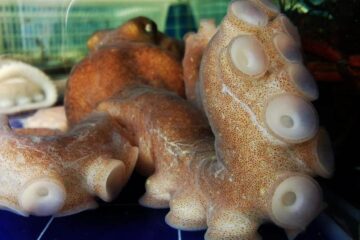Cell injections accelerate fracture healing

Dr Seok-Jung Kim from the Catholic University College of Medicine, Seoul, coordinated a multi-centre, randomized clinical study of the osteoblast treatment. He said, “The cultured osteoblast injection group showed fracture healing acceleration of statistical significance, and there were no specific patient complications when using this treatment. Cultured osteoblast injection should therefore be considered as a successful treatment option for long-bone fracture”.
Between May 2006 and January 2008, 64 patients were included in the study. Of these, 31 were randomly allocated to receive the treatment and 33 were left to heal normally as a control group. There were no significant age, sex or body-shape differences between the two groups. According to Dr Kim, “There was significantly more bone growth in the experimental group, compared to the control group. Autologous cultured osteoblast transplant is a safe and effective method for accelerating the rate of fracture healing.”
Dr Kim added, “Time has increasingly become the most important factor in clinical decision-making. While fractures generally will eventually heal, bone union can frequently be delayed to the extent that it requires bone transplantation. Not only does this cause psychological and physical pain to the individual patient, it's also not economically viable. Although bone transplant remains the most effective method of bone union, osteoblast injections provide an alternative which can be performed under local anesthesia with no requirement for surgery”.
1. A multi-center, randomized, clinical study to compare the effect and safety of autologous cultured osteoblast(OssronTM) injection to treat fractures
Seok-Jung Kim, Yong-Woon Shin, Kyu-Hyun Yang, Sang-Bum Kim, Moon-Jib Yoo, Suk-Ku Han, Soo-Ah Im, Yoo-Dong Won, Yerl-Bo Sung, Taek-Soo Jeon, Cheong-Ho Chang, Jae-Deog Jang, Sae-Bom Lee, Hyun-Jo Kim and Su-Young Lee
BMC Musculoskeletal Disorders (in press)
2. BMC Musculoskeletal Disorders is an open access journal publishing original peer-reviewed research articles in all aspects of the prevention, diagnosis and management of musculoskeletal and associated disorders, as well as related molecular genetics, pathophysiology, and epidemiology. BMC Musculoskeletal Disorders (ISSN 1471-2474) is indexed/tracked/covered by PubMed, MEDLINE, CAS, Scopus, EMBASE, Current Contents, Thomson Reuters (ISI) and Google Scholar.
3. BioMed Central (www.biomedcentral.com) is an STM (Science, Technology and Medicine) publisher which has pioneered the open access publishing model. All peer-reviewed research articles published by BioMed Central are made immediately and freely accessible online, and are licensed to allow redistribution and reuse. BioMed Central is part of Springer Science+Business Media, a leading global publisher in the STM sector.
Media Contact
More Information:
http://www.biomedcentral.comAll latest news from the category: Studies and Analyses
innovations-report maintains a wealth of in-depth studies and analyses from a variety of subject areas including business and finance, medicine and pharmacology, ecology and the environment, energy, communications and media, transportation, work, family and leisure.
Newest articles

Technical Trials for Easing the (Cosmological) Tension
A new study sorts through models attempting to solve one of the major challenges of contemporary cosmic science, the measurement of its expansion. Thanks to the dizzying growth of cosmic…

Peptides on Interstellar Ice
A research team led by Dr Serge Krasnokutski from the Astrophysics Laboratory at the Max Planck Institute for Astronomy at the University of Jena had already demonstrated that simple peptides…

Octopus inspires new suction mechanism for robots
A new robotic suction cup which can grasp rough, curved and heavy stone, has been developed by scientists at the University of Bristol. The team, based at Bristol Robotics Laboratory,…





















